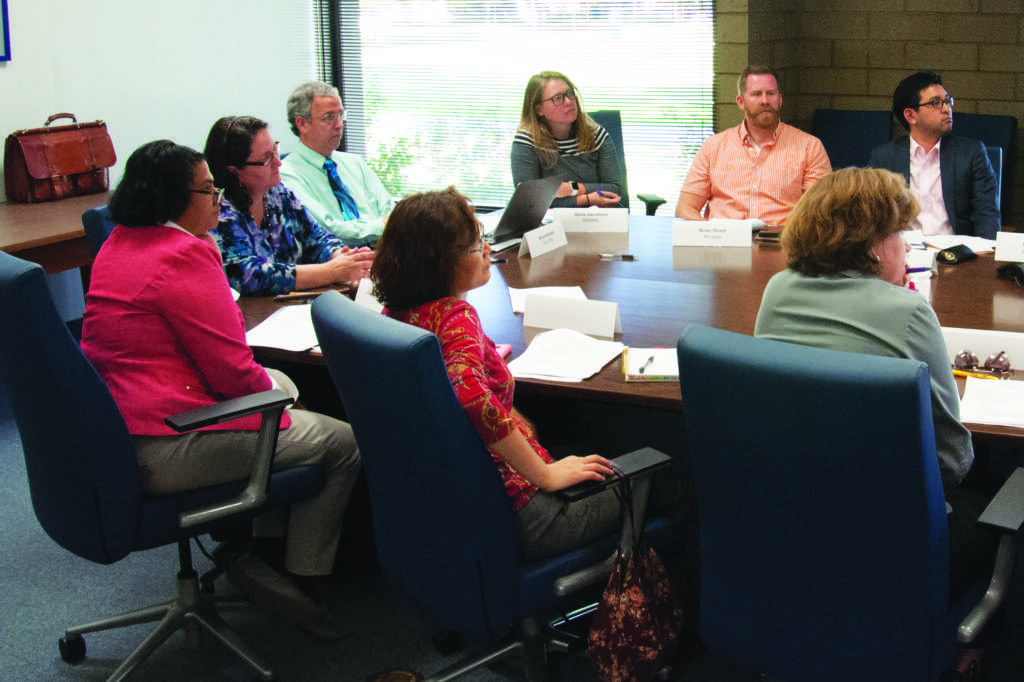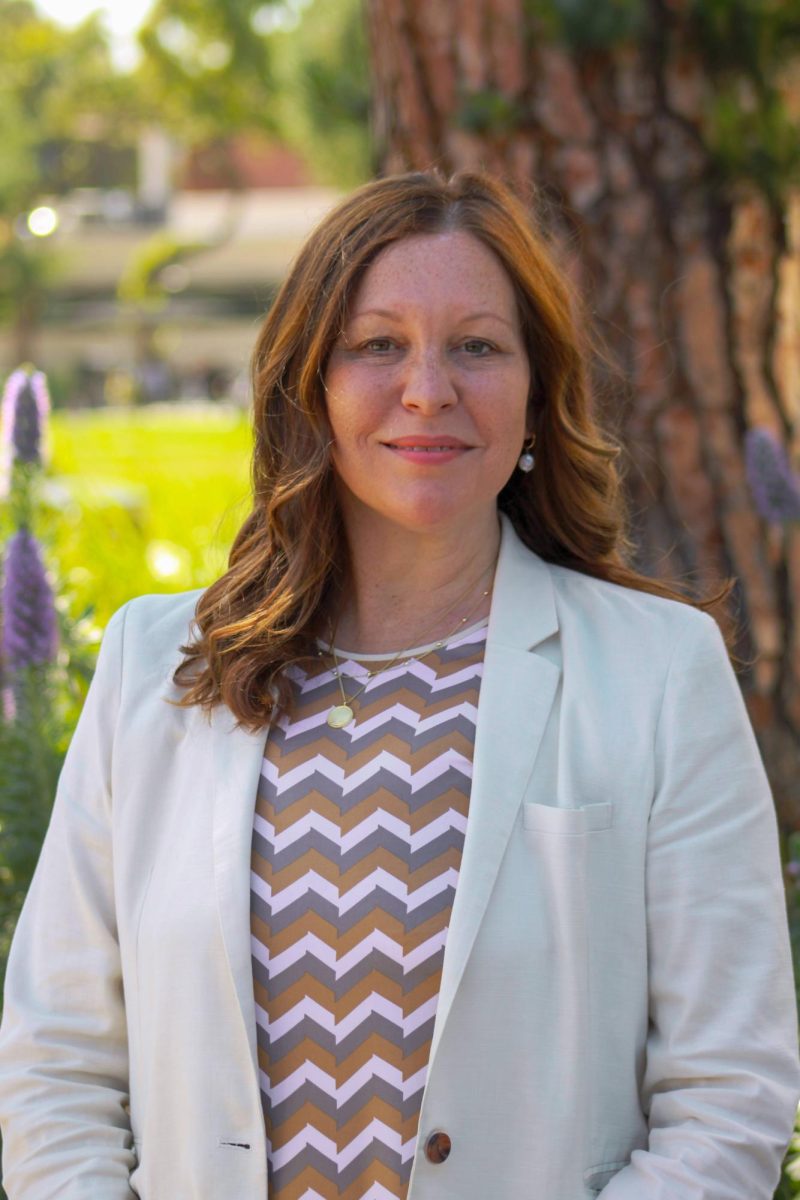By Sonia Lemus
Assistant News Editor
Ever since CSU Bakersfield President Dr. Horace Mitchell announced his retirement on Aug. 24, people have wondered who will take over.
The search for CSUB’s next president will be a closed search so faculty, students, staff, and administrators will have to wait until fall 2018 to find out who the new president is. In an open search, it is known who the candidates are and there are open forums where students and faculty can meet them and ask questions.
In a closed search, the only people who meet and interview the candidates are the six members of the Trustees Committee and the other nine people on the Advisory Committee.
Faculty, staff, and students not in those committees know nothing about who the candidates are.
The candidate will not be revealed until the very last minute.
If a finalist visits the campus, she or he will do so in a secretive manner. No one knows who they are or that they are even visiting.
Sociology professor Amanda Studebaker said, “It is extremely important that the people know what the president has planned to make the campus better. What kind of goals do they have? What are some problems they are wanting to address?”
The Board of Trustees Policy for the Selection of Presidents states that the Trustees Committee is composed of the following: the chancellor, who in this case will be the current Chancellor Timothy P. White, the Chair of the Board will be CSUB alumnus John Nilon, and four trustees.
The members of the Advisory Committee will be the Chair of the Academic Senate, Deborah Boschini, one student which will be ASI president Mariela Gomez, two faculty, one staff member, one member of the campus advisory board, one alumus, one vice president or academic dean, and a president from another CSU who is appointed by the chancellor.
An open forum to speak to the members of the committees will be held on Oct. 30 from 1:30 p.m. to 3:30 p.m at the Doré Theater.
The campus community is strongly encouraged to attend this forum, as it is the only scheduled open forum.
Gomez said, “I am planning on holding more forums in the MPR in the morning, afternoon, and evening. I want to know what students want from their president.”
Dates and times for these additional open forums have not been set, but Gomez expects to begin them after the Oct. 30 forum.
As for what she would like for CSUB’s next president, Gomez said she wants to continue having a president who has a strong relationship with students and ASI.
CSUB is not the first or only CSU to have a closed presidential search. Notably, 21 out of the 23 CSU campuses have already held closed searches since the policy took effect in 2011 under former Chancellor Charles B. Reed.
One of the key differences in the change of policy is that there are no open campus visits from the finalists in the presidential search.
In an open campus visit, forums are held and the campus community had the opportunity to meet the finalist.
Both policies had a Trustees Committee and an Advisory Committee.
The former policy states that there should be open forums designed to generate support from the campus community.
Geology department chair Anthony Rathburn participated in an open presidential search at Indiana State University.
“The process was very positive. There was no concern for the faculty,” said Rathburn.
According to Dr. John Tarjan, representative of CSU Bakersfield in the Academic Senate of the California State University the main reason for the CSU system to have a closed search was to increase the number of applicants for the position.
Both Tarjan and Boschini said that they understand the argument being made by the CSU system; however, neither feel it is compelling enough to have a closed search rather than an open search.
“The problems with having a closed search outweigh the benefits,” said Tarjan.
Tarjan and Boschini do not stand alone in this sentiment.
On Oct. 12, the Academic Senate unanimously passed a resolution urging the CSU Board of Trustees to conduct an open search to replace President Mitchell.
The resolution also requests that all the members of both the search committees meet with the Academic Senate.
This is not the first resolution the Academic Senate has passed regarding closed searches.
On Oct. 6, 2011 the Academic Senate gave its position on the then-newly implemented policy stating that the Academic Senate urged the CSU Board of Trustees to continue having open campus visits for potential candidates.
The resolution stated, “Arriving on campus without having the support and legitimacy provided by such a process would put the chosen candidate at a significant disadvantage in building a successful transition.”
Then again, on Oct. 8, 2015, the Academic Senate passed Resolution 151601, “Open and Transparent CSU Presidential Searches.”
This resolution was made in solidarity with Sonoma State University, San Jose State University, CSU Channel Islands and CSU Chico, all of whom were having closed search presidential searches at the time.
It also provided a quote from CSU Sacramento’s President Robert S. Nelsen that he gave for his fall address.
Nelsen had just been chosen through the closed search process.
“I hate that I didn’t get the opportunity to meet all of you during the search and that I am only meeting you now. And I don’t like it that you are only meeting me now and that the huge majority of you had no say in whom [sic] your next president would be,” said Nelsen.
Every other position at CSUB is chosen through an open search process.
Boschini reminisced on the election process for current Provost Jenny Zorn, who was hired in 2015.
“I attended the forums and provided feedback. I already knew who she was [before she officially took on the position], and I knew we had made a great decision,” said Boschini.
The main issues faculty have concerning a closed search process are that it violates shared governance, and that the next president may not be seen by the campus community as their leader, since they did not openly choose this person.
“They [the candidates] should get more involved with the faculty to let them know this is a school that I care about, not just a job that I am getting,” said Studebaker.
Rathburn has a more positive outlook about faculty support.
“If you have a president you are to rally with him or her,” said Rathburn.
However, Rathburn also said that, “The choice of president would be a stronger one if faculty were more involved.”
“I believe in open searches. I was elected by a faculty who believe in open searches,” said Boschini.
Boschini will be participating in the Advisory Committee.
“If I have the opportunity to influence in any way, if I am given the opportunity to be at the table, I will be there,” said Boschini.
Despite her disapproval of a closed search process, Boschini still says she doesn’t want to judge the person choosen as CSUB’s president, before he or she takes on the job.
“We have our own unique challenges and needs. I just want a president who will advocate for this campus,” said Boschini.
Some students agree with faculty and said they would prefer an open search process.
“I think it should be open. People should know who they are electing,” said Michelle Jacinto, law enforcement major.
Jacinto says that she can understand faculty finding it difficult to support the new president.
“Yes, I think it would be difficult and unfair to those who have to follow him,” said Jacinto.
Despite his dislike of a closed search process, Dillon Braisher, music education major, said that he would support the candidate if a closed search was the only option.
The committees will have two closed forums only for committee members scheduled on Feb. 5, 2018 and March 1 and 2, 2018.

Photo by Jarad Mann/ The Runner






